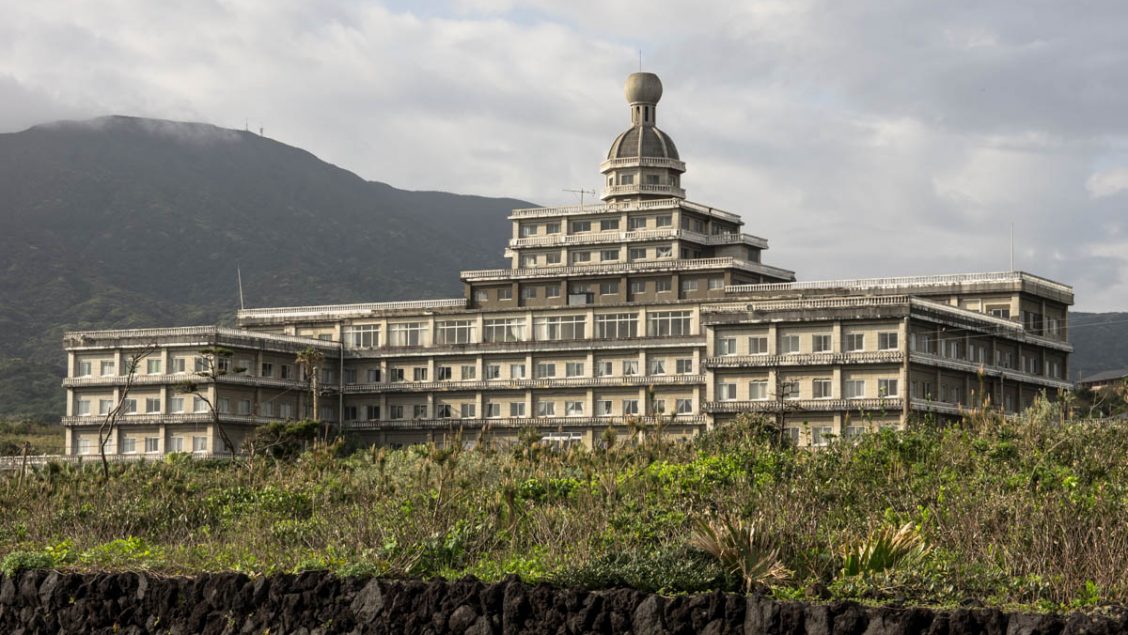In the mid-1960s, something big was happening in Japan: more and more people were venturing out of the country for vacations. Before 1964, though, it wasn’t easy for the average Japanese person to get a passport and travel overseas. The government wanted people to spend their money at home, so they made it tough to leave. That’s why, in the early part of the decade, folks looking for vacation spots had to stick closer to home.


Luckily, they didn’t have to search far. The Izu Islands, especially Hachijo-jima, a volcanic island not too far from Tokyo, became a hot spot. Thanks to ferries and an airport set up by the Imperial Japanese Navy, getting there was easy. Plus, the government pitched it as the “Hawaii of Japan,” and people loved the idea. Soon, money poured in, and the island saw lots of new buildings and investments.



The grandest project was the Hachijo Royal Hotel, designed to look like a fancy French palace. With statues, fountains, and all sorts of lavish touches, it was a symbol of Japan’s booming economy. When it opened in 1963 (though some say it was 1968), it was one of Japan’s biggest hotels. Middle-class Japanese families flocked there for vacations, and even the hotel’s president, Eiji Yasuda, got his own statue, right next to his favorite horse.


Jump ahead 30 years, and things weren’t looking so good. By then, traveling abroad had become pretty common, making the idea of chilling on black volcanic beaches seem less exciting. With top-notch beaches just a short flight away in places like Guam, Hawaii, and Thailand, Hachijo-jima was facing an uphill battle to stay relevant. The hotel went through a few name changes but settled on Hachijo Oriental Resort before it finally shut down for good in 2006.

I recently paid a visit to the old hotel site, and let me tell you, it’s a sorry sight. Even though it’s only been 10 years since it closed, the tropical weather and salty sea air have done a number on the place. The once-manicured grounds now look like a wild jungle. And with each passing day, the chances of finding a new owner willing to take it on seem to shrink, leaving this once-grand hotel to crumble away.
Also Recommended: The Henry W. Merriam House Located in Newton, New Jersey

